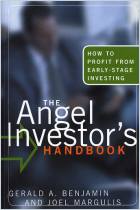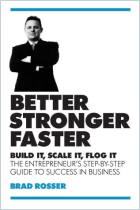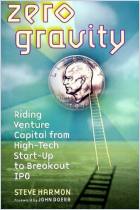
Angel Investing
Matching Start-Up Funds with Start-up Companies - The Guide for Entrepreneurs, Individual Investors, and Venture Capitalists
Read or listen offline
Amazon KindleRecommendation
This fascinating book balances thorough academic scholarship (every reference is detailed, in the manner of scientific texts) with practical information for entrepreneurs and investors. The subject matter is among the most critical areas facing the "New Economy." Understanding and finding equity investors is vital as more and more people are challenged to take charge of their own fate and become entrepreneurs. This book bills itself as the first serious examination of the "business angel" capital market, and so it fills a critical need. Its suggestions are presented in plain, emphatic language and both investors and entrepreneurs should find it straightforward - though not necessarily easy - to implement them. The authors even manage to slip in some appropriate humor along the way. Their preface says this book should be read by anyone who is considering starting a firm, considering investing in a firm, seeking investors in a firm or considering an IPO for a firm. getAbstract agrees.
Summary
About the Authors
Mark Van Osnabrugge has spent many years studying the business angel and venture capital markets. He holds a B.B.A. degree from the University of Wisconsin-Madison and a Ph.D., from Oxford University. He recently completed a fellowship at the Harvard Business School and is currently a management consultant at Marakon Associates. Robert J. Robinson has B.A. and M.A. degrees from the University of Cape Town and a Ph.D., from Stanford University. He is an associate professor at the Harvard Business School, where he teaches courses in Negotiation and Entrepreneurial Negotiation.






















Comment on this summary or Diskussion beginnen